- Home
- Kathryn Le Veque
The Splendid Hour: The Executioner Knights Book 7
The Splendid Hour: The Executioner Knights Book 7 Read online
The Splendid Hour
A Medieval Romance
By Kathryn Le Veque
de Lohr Dynasty series
—and—
Part of the Executioner Knights series
© Copyright 2021 by Kathryn Le Veque Novels, Inc.
Kindle Edition
Text by Kathryn Le Veque
Cover by Kim Killion
Edited by Scott Moreland
Reproduction of any kind except where it pertains to short quotes in relation to advertising or promotion is strictly prohibited.
All Rights Reserved.
The characters and events portrayed in this book are fictitious. Any similarity to real persons, living or dead, is purely coincidental and not intended by the author.
License Notes:
This eBook is licensed for your personal enjoyment only. This eBook, once purchased, may not be re-sold. If you would like to share this book with another person, please purchase an additional copy for each recipient. If you’re reading this book and did not purchase it or borrow it, or it was not purchased for you and given as a gift for your use only, then please return it and purchase your own copy. If this book was purchased on an unauthorized platform, then it is a pirated and/or unauthorized copy and violators will be prosecuted to the full extent of the law. Do not purchase or accept pirated copies. Thank you for respecting the author’s hard work.
ARE YOU SIGNED UP FOR KATHRYN’S BLOG?
You’ll get the latest news and information on exclusive giveaways, exclusive excerpts, coming releases, sales, free books, cover reveals and more.
Kathryn’s blog followers get it all first. No spam, no junk.
Get the latest info from the reigning Queen of English Medieval Romance!
Sign Up Here
AUTHOR’S NOTE
Welcome to Peter de Lohr’s novel!
Strange how I never saw Peter having his own novel until he joined the Executioner Knights. Then, it wasn’t “if” he’d have his own, but “when”. Peter is on the young side for an Executioner Knight – and he hasn’t had this vast lifetime of experience like some of the older members – Maxton, Kress, Achilles, Sherry, Cai, etc. – but he’s the next generation of greatness and they recognize that. I think that’s why they embrace him. Not because of who his father is, but because of who he is. He’s Peter. And he’s definitely destined for greatness.
Now, let’s talk about when this book is set. We’re right after when the Magna Carta was signed, during a very turbulent time between King John and the rebel barons. The Magna Carta (and I’ve read it) is a very complex document that is mostly about the relationship between the king and his barons rather than a document between the king and ordinary people. It completely serves the warlords, but there are a lot of elements in it that were the founding of many governments, including the United States of America.
Specifically, this story starts in August 1215 A.D. John signed the Magna Carta in June of that year, so it’s two months later and nobody seems really apt to adhere to the terms of the charter – warlords included. The rebels hold London at this point (remember the siege of London in Lord of the Shadows), and per the Magna Carta, they were supposed to surrender the city if John agreed to their terms. He agreed, but they didn’t trust him so they didn’t leave, which means John pulled in the Pope to punish them. For once in his life, John wanted the help of the Catholic Church, which he’d had a terrible relationship with for all of his reign.
Enter William Marshal and his agents and allies. William Marshal had a very turbulent relationship with John. He was in favor, he was out. In, out. At this time, he is in – and he is siding with the king, but for very specific reasons. Christopher de Lohr, however, is not. That puts him and The Marshal on opposite sides and puts the Executioner Knights right in the middle of it.
Interestingly, as John engaged in a contentious relationship with the Catholic Church, he was one of the few monarchs that had a decent relationship with the Jews of London. The history of English is rife with the poor treatment of the Jewish population, mostly at the hands of the monarchs, but John was a surprisingly rare exception. During the reign of Henry II, John’s father, the Jews became powerful both financially and politically, and Henry had a decent relationship with them also.
John recognized what his father had – that the Jewish merchants and bankers were necessary – and skilled – at generating income, so he afforded them a great deal of protection. However, that didn’t sit well with his Christian warlords, many of whom were Crusade veterans from Richard the Lionheart’s Great Quest and had bigoted beliefs towards Jews. It was just one more conflict between John and his warlords in a sea of conflicts. It’s of interest to note that John wasn’t tolerant of Jews because he was benevolent – it was really only financial and, at times, political. The Christian warlords knew this and, not strangely, one of the conditions in the Magna Carta limits the power of the king and his Jewish bankers over Christian debtors’ estates. So – the history of John and his relationship to the Jewish population of England makes for very interesting reading.
Now, there are some issues addressed in this book about the Christian and Jewish relationships. Really, there weren’t any unless it was financial or some other kind of professional relationship. What they call “intermarriage”, a marriage between a Jew and a Christian, was forbidden by the Torah, although by this time in history, the situation was relaxing a little. It wasn’t forbidden any longer (meaning the offenders weren’t put to death), but it would be virtually impossible for an English knight, who’d swore an oath to God and Christianity, to be married to a Jewish woman without someone having to convert. That means the situations you will read in this novel are not contrived. Were a relationship between our hero and heroine really to happen, the difficulty would be very real and choices, for the sake of the time period and the culture, would have to be made. There was really no such thing as just “accepting the situation”.
Now you’re prepared to read it!
On a completely different note, let’s talk about Christopher and David de Lohr. They are in this tale because they are part of the Executioner Knights, but also because they’re some of my favorite secondary characters. They just pop up everywhere. I’ve you’ve read Steelheart, Shadowmoor, and Silversword, you get a glimpse at David, his son Daniel, and Daniel’s son, Chadwick in these stories, but in Silversword, there are clues about when Christopher and David passed away. I sat down and did the math and realized that Christopher and David had the same longevity as the de Wolfe Pack boys – William, Paris, and Kieran. If you’ve read de Wolfe Pack Generation stories, then you know that William, Paris, and Kieran are extremely elderly. Well, guess who else ended up being extremely elderly? You guessed it – Christopher (b. 1156 – d. 1249) and David, who outlived everyone (b. 1159 – d. 1260). That makes them 93 years and 101 years at their death, respectively. Not bad for knights when their average life expectancy was 31 years old (disease and battle will do that to you). But there were exceptions, as there always are – and we see several in my universe.
Now, the usual pronunciation guide:
It has occurred to me in all of the books I’ve written that I’ve never clarified how “papa” and “mama” are pronounced. If you’re an American, it’s “PAH-puh” and “MAH-muh”. However, for Medieval England, it’s “puh-PAH” and “muh-MAH”. Different emphasis on different syllables.
I think the only name in this story that might need clarification is the heroine’s – Liora – Lee-OR-uh
Lastly, a list of the de Lohr siblings to refresh your memory (because they pop up in here):
Peter (Christopher’s son with Lady Amanda)
Christin
Brielle
Curtis
Richard
Myles
Rebecca
Douglas
Westley
Olivia Charlotte (the future Honey de Shera)
And with that – enjoy this very different but very adventurous tale!
Hugs,
It’s Christopher de Lohr’s bastard son, Peter, in a tale that could change the stars of the House of de Lohr forever…
When religion and politics don’t meet, it’s an explosion that could tear the Executioner Knights – and England – apart forever…
Peter de Lohr is the illegitimate son of the greatest knight in the realm, though he has been accepted by his father. Not only accepted – embraced. Peter is well-loved by everyone, an enormous and powerful knight in the image of his famous sire.
He is also an Executioner Knight, and one of the very best. A great marriage is expected of him, it is presumed, to the daughter of a high-placed warlord.
Until he meets Liora ben Thad.
Petite, raven-haired and blue-eyed, Liora is the exquisite and glamorous daughter of a very prosperous goldsmith. She is also a Jewess, her father being a jeweler to the king. It is a time of great prosperity for the Jews of London, with King John being surprisingly fair to them, far more equitable than to some of his own barons.
When Peter sees Liora, all other women – and quite possibly his plans for the future – cease to exist.
But that comes at a price.
The high-placed warlord and his daughter will not go quietly and they certainly will not relinquish a prize like Peter de Lohr to a woman of lesser social status. So begins a plot to separate Peter from Liora, a sinister plan that will threaten the House of de Lohr and the Executioner Knights… and everything they believe in.
One that puts Peter right in the line of fire.
Will two cultures, and two religions, and a royal order keep Peter and Liora apart?
Or will their love find a way?
Watch the Executioner Knights take sides in this delicious – and unusual – love story.
House of de Lohr motto
Deus et Honora
God and Honor
Table of Contents
Title Page
Copyright Page
Author’s Note
About the Book
Epigraph
List of Executioner Knights/Spies for William Marshal
Rebel Warlords and Other Notables
The Warrior’s Prayer
Prologue
Chapter One
Chapter Two
Chapter Three
Chapter Four
Chapter Five
Chapter Six
Chapter Seven
Chapter Eight
Chapter Nine
Chapter Ten
Chapter Eleven
Chapter Twelve
Chapter Thirteen
Chapter Fourteen
Chapter Fifteen
Chapter Sixteen
Chapter Seventeen
Chapter Eighteen
Chapter Nineteen
Chapter Twenty
Chapter Twenty-One
Epilogue
Afterword
Kathryn Le Veque Novels
About Kathryn Le Veque
LIST OF EXECUTIONER KNIGHTS/SPIES FOR WILLIAM MARSHAL
As of 1215 A.D.
(Note: some later Executioner Knight tales take place years after this story is set, so as of 1215 A.D., this is where these knights serve and/or are in command of. Also note that while some Executioner Knights may be mentioned, not all appear in this story.)
William Marshal – Earl of Pembroke, Pembroke Castle and Farrington House
Christopher de Lohr – Earl of Hereford and Worcester, Lioncross Abbey Castle
David de Lohr – Earl of Canterbury, Canterbury Castle, Bellham Place
Peter de Lohr – Lioncross Abbey Castle, Lord Pembridge/garrison commander Ludlow Castle
Gart Forbes – Dunster Castle, Devon
Caius d’Avignon – Richmond Castle, North Yorkshire – also Hawkstone Castle
Maxton of Loxbeare – Chalford Hill Castle, Gloucester
Kress de Rhydian – Seton Castle, Scotland
Achilles de Dere – Caversham Manor, Berkshire
Susannah de Tiegh de Dere – a Blackchurch-trained knight, wife of Achilles
Alexander de Sherrington – Lioncross Abbey Castle/garrison commander, Wigmore Castle
Bric MacRohan – Narborough Castle, Norwich Castle, Norfolk
Dashiell du Reims – Ramsbury Castle, Wiltshire – also Thunderbey Castle, East Anglia.
Sean de Lara – King John’s personal bodyguard
Kevin de Lara – Canterbury Castle (in the service of David de Lohr) – also Hyssington, Caradoc, and Trelystan Castles – Welsh Marches
Cullen de Nerra – Rockingham Castle, Northamptonshire
Cole de Velt – formerly William the Lion’s personal guard, now at Berwick Castle
Addax al-Kort – service to Christopher de Lohr and William Marshal
Essien al-Kort – service to Christopher de Lohr and William Marshal
Morgan de Wolfe – in service to Caius d’Avignon, Richmond Castle
Gareth de Llion – in service to William Marshal
Rhys du Bois – in service to Christopher de Lohr/after 1201 living in France under an assumed name
Keller de Poyer – in service to William Marshal at Pembroke Castle/Netherworld Castle (Keller is more of a knight for William Marshal than he’s actually a spy)
Garran le Mon – technically, he’s believed to be dead after 1201 A.D.
Marcus Burton – Lord Somerhill and Dunnington, Somerhill Castle
REBEL WARLORDS AND OTHER NOTABLES
This is only a partial and mostly fictional list, as appearing in this novel.
“The Northerners” (this was actually a term for warlords from the north who rebelled against King John)
Juston de Royans – Bowes Castle
Ajax de Velt – Pelinom Castle and Berwick Castle
Yves de Vesci – Earl of Alnwick
Alastor de Bourne – Castle Keld
Marcus Burton – Somerhill Castle
Allies of The Northerners:
Christopher de Lohr
David de Lohr
Duke of Savernake, Bentley de Vaston/Dashiell du Reims
House of de Lara (Kevin, Sean)
Maxton of Loxbeare
Alexander de Sherrington
Caius d’Avignon
Siding with John (though still secretly allied with de Lohr and the rebellion):
Daveigh de Winter/Bric MacRohan
Valor de Nerra/Cullen de Nerra
William Marshal, Kress de Rhydian, Achilles de Dere
THE WARRIOR’S PRAYER
(Origins unknown – suspected Viking prayer, 9th century. Note that there is a similar warrior’s prayer in the epic poem, Beowulf, and there are several versions of it throughout history.)
Behold, I see those I love, and my relatives who have died before me.
I see my father seated in the golden halls with an empty seat beside him.
I see the greatest warriors who have ever lived, surrounding my father, calling to me.
Death is not the end, but the beginning, for a true warrior never dies.
He takes his place of greatness among those who are worthy.
Mourn not the glorious dead but rejoice in their legacy.
They wait for me, not in this life, but in the next,
Where their legends shall live forever.
PROLOGUE
~ CAVE SORS (BEWARE OF FATE) ~
September
Year of Our Lord 1215
London
He’d seen her coming.
Christ!
Lady Agnes de Quincy was out looking for him. He knew that. Oh, she prete
nded she was out on the dirty, crowded streets of London for another purpose, but the truth was that she was looking for him. The woman lusted after him like a predator lusted for prey. She was in love with him, or so she swore to anyone who would listen, but he was certain her father was more in love with him than she was because a marriage between his darling Agnes (and he could only hear that name in his head with the man’s lisping drawl) and Peter de Lohr, the new Lord Pembridge, would cement a great alliance between two Marcher families. The House of de Lohr and the House of de Quincy from Astley Cross would be forever immortalized in flesh and blood, and pomp and circumstance, as befitting two great families.
Well, he wanted no part of it.
He had to hide.
It wasn’t exactly easy, however. Peter was assigned the high-visibility security detail for the coming conference between King John and the warlords who hated the mere sight of him, his father included. Christopher de Lohr, the Earl of Hereford and Worcester, had been leading the pack against a man he’d hated for thirty years. His father, who had been Richard the Lionheart’s champion, grossly hated the stench that John Lackland’s name brought to his very sense of being, a distaste that went bone-deep.
Peter knew it. Everyone knew it. For years, Christopher had sided with William Marshal, a solid and unbreakable alliance, but that alliance was showing cracks with The Marshal’s tempestuous relationship with the king. One day the man was out of favor, the next day he was in. Christopher could no longer put up with John’s corrupt ways and the wavering relationship with The Marshal. When he finally took a stand and broke with William Marshal, he took many warlords with him. That also meant The Marshal’s circle of secret agents, the greatest spy network the world had ever seen, had fractured.
For the moment.
But men could still love one another and not exactly be on the same side.
The Executioner Knights, as the men from The Marshal’s spy ring were called, still functioned as a group for the most part. They still served their missions, tasks required by The Marshal. It simply meant that the situation was a bit fragile these days.

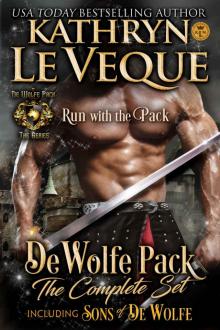 The Original de Wolfe Pack Complete Set: Including Sons of de Wolfe
The Original de Wolfe Pack Complete Set: Including Sons of de Wolfe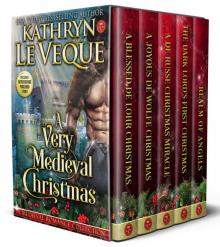 A Very Medieval Christmas: A Medieval Romance Novella Bundle
A Very Medieval Christmas: A Medieval Romance Novella Bundle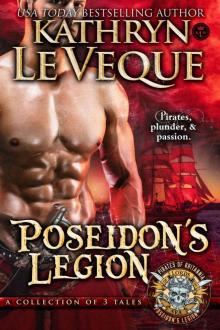 Poseidon’s Legion
Poseidon’s Legion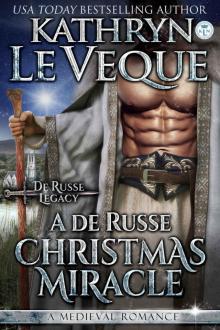 A de Russe Christmas Miracle (de Russe Legacy Book 8)
A de Russe Christmas Miracle (de Russe Legacy Book 8) Border Brides
Border Brides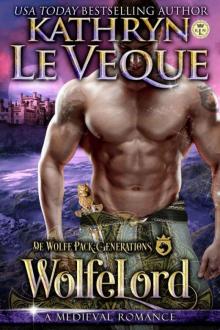 WolfeLord: de Wolfe Pack Generations
WolfeLord: de Wolfe Pack Generations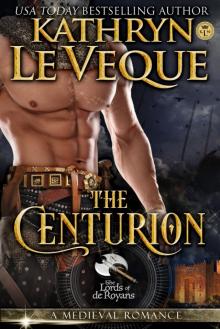 The Centurion
The Centurion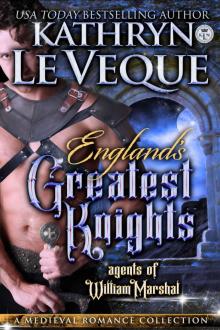 England's Greatest Knights: A Medieval Romance Collection
England's Greatest Knights: A Medieval Romance Collection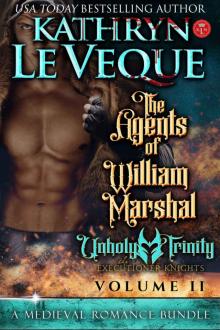 The Agents of William Marshal Volume II: A Medieval Romance Bundle
The Agents of William Marshal Volume II: A Medieval Romance Bundle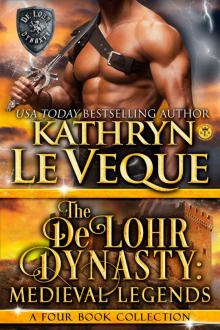 The de Lohr Dynasty: Medieval Legends: A Medieval Romance Collection
The de Lohr Dynasty: Medieval Legends: A Medieval Romance Collection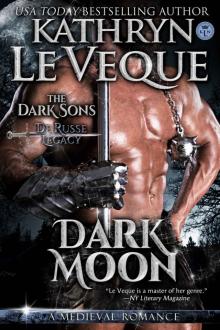 Dark Moon (The de Russe Legacy Book 6)
Dark Moon (The de Russe Legacy Book 6)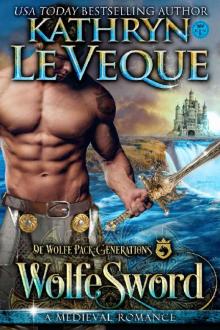 WolfeSword: de Wolfe Pack Generations
WolfeSword: de Wolfe Pack Generations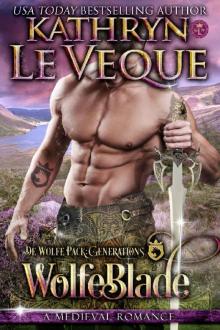 WolfeBlade: de Wolfe Pack Generations
WolfeBlade: de Wolfe Pack Generations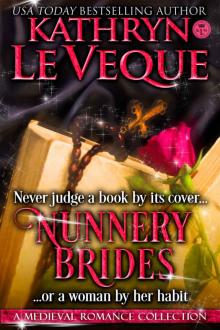 Nunnery Brides: A Medieval Romance Collection
Nunnery Brides: A Medieval Romance Collection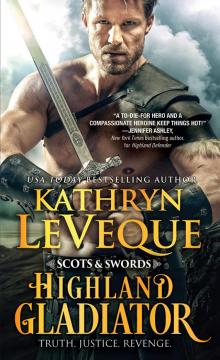 Highland Gladiator
Highland Gladiator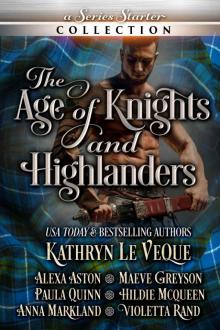 The Age of Knights and Highlanders: A Series Starter Collection
The Age of Knights and Highlanders: A Series Starter Collection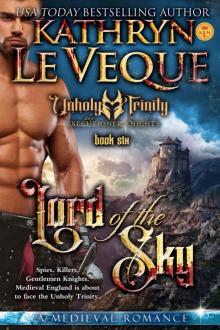 Lord of the Sky (The Executioner Knights Book 6)
Lord of the Sky (The Executioner Knights Book 6)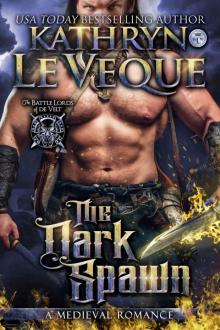 The Dark Spawn (Battle Lords of de Velt Book 5)
The Dark Spawn (Battle Lords of de Velt Book 5)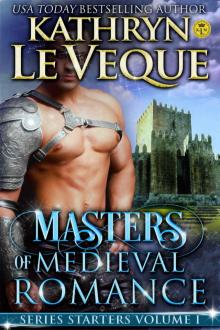 Masters of Medieval Romance: Series Starters Volume 1
Masters of Medieval Romance: Series Starters Volume 1 Highland Legend
Highland Legend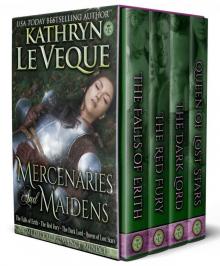 Mercenaries and Maidens: A Medieval Romance bundle
Mercenaries and Maidens: A Medieval Romance bundle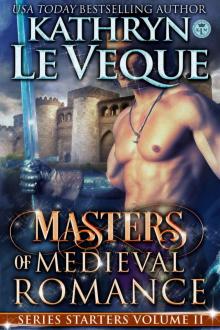 Masters of Medieval Romance: Series Starters Volume II
Masters of Medieval Romance: Series Starters Volume II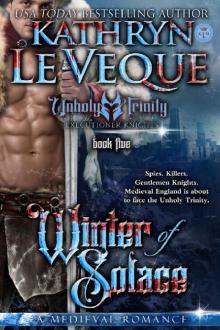 Winter of Solace (The Executioner Knights Book 5)
Winter of Solace (The Executioner Knights Book 5)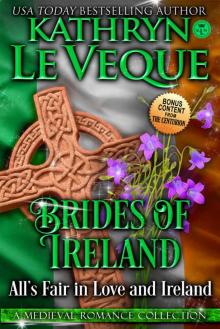 Brides of Ireland: A Medieval Historical Romance Bundle
Brides of Ireland: A Medieval Historical Romance Bundle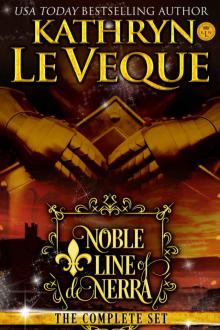 Noble Line of de Nerra Complete Set: A Medieval Romance Bundle
Noble Line of de Nerra Complete Set: A Medieval Romance Bundle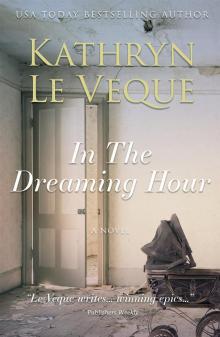 In the Dreaming Hour
In the Dreaming Hour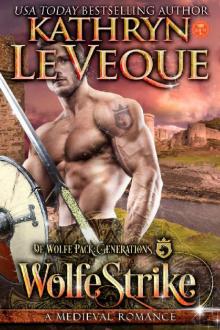 WolfeStrike (de Wolfe Pack Generations Book 2)
WolfeStrike (de Wolfe Pack Generations Book 2)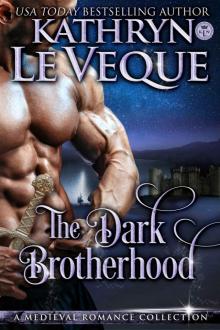 The Dark Brotherhood: A Medieval Romance Collection
The Dark Brotherhood: A Medieval Romance Collection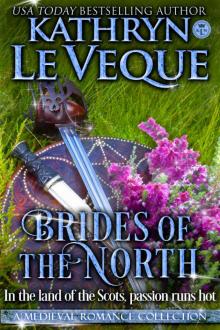 Brides of the North: A Medieval Scottish Romance Bundle
Brides of the North: A Medieval Scottish Romance Bundle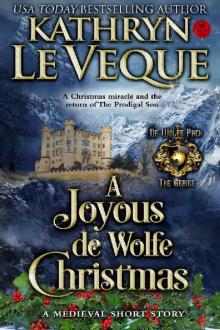 A Joyous de Wolfe Christmas: A de Wolfe Sons short story (de Wolfe Pack Book 6)
A Joyous de Wolfe Christmas: A de Wolfe Sons short story (de Wolfe Pack Book 6)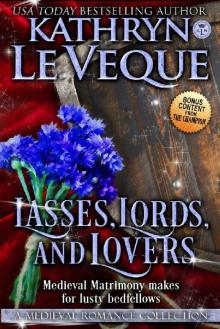 Lasses, Lords, and Lovers: A Medieval Romance Bundle
Lasses, Lords, and Lovers: A Medieval Romance Bundle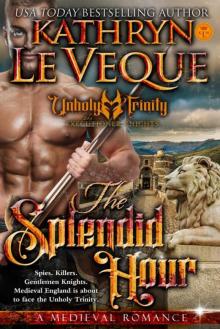 The Splendid Hour: The Executioner Knights Book 7
The Splendid Hour: The Executioner Knights Book 7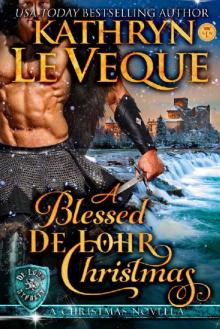 A Blessed de Lohr Christmas (de Lohr Dynasty Book 9)
A Blessed de Lohr Christmas (de Lohr Dynasty Book 9)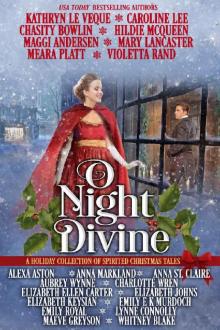 O Night Divine: A Holiday Collection of Spirited Christmas Tales
O Night Divine: A Holiday Collection of Spirited Christmas Tales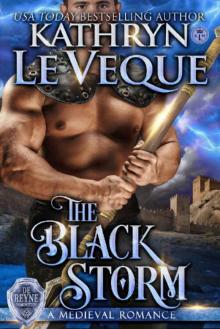 The Black Storm (De Reyne Domination Book 4)
The Black Storm (De Reyne Domination Book 4)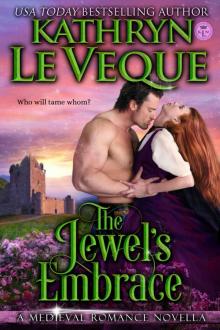 The Jewel's Embrace: A Medieval Romance Novella
The Jewel's Embrace: A Medieval Romance Novella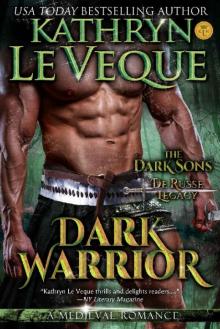 Dark Warrior (de Russe Legacy Book 9)
Dark Warrior (de Russe Legacy Book 9)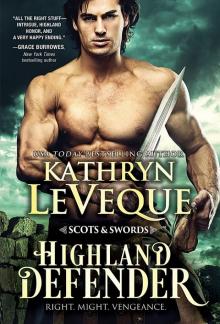 Highland Defender
Highland Defender Romancing the de Wolfe Collection: Contemporary Romance Bundle
Romancing the de Wolfe Collection: Contemporary Romance Bundle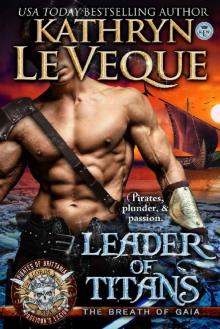 Leader of Titans: Pirates of Britannia: Lords of the Sea Book 2
Leader of Titans: Pirates of Britannia: Lords of the Sea Book 2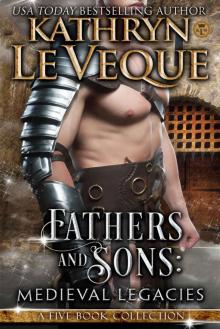 Fathers and Sons: A Collection of Medieval Romances
Fathers and Sons: A Collection of Medieval Romances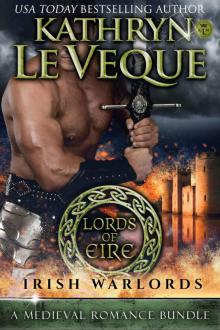 Lords of Eire: An Irish Medieval Romance Bundle
Lords of Eire: An Irish Medieval Romance Bundle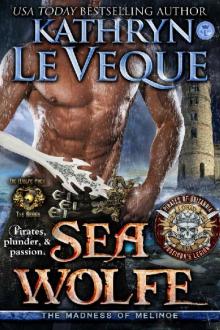 Sea Wolfe
Sea Wolfe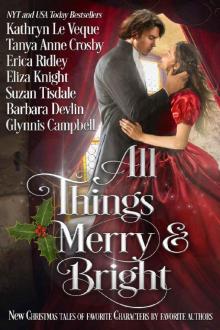 All Things Merry and Bright: A Very Special Christmas Tale Collection
All Things Merry and Bright: A Very Special Christmas Tale Collection The Forbidden Highlands
The Forbidden Highlands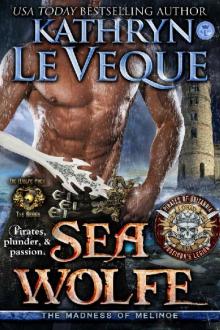 Sea Wolfe_Pirates of Britannia Lords of the Sea Book 4)
Sea Wolfe_Pirates of Britannia Lords of the Sea Book 4)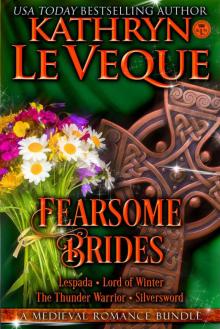 Fearsome Brides
Fearsome Brides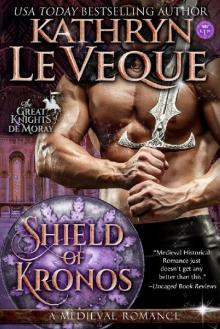 Shield of Kronos
Shield of Kronos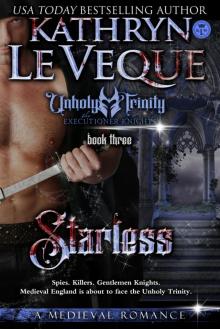 Starless
Starless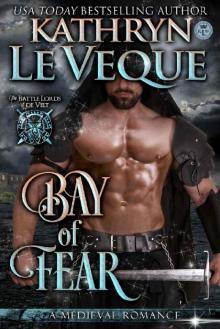 Bay of Fear (Battle Lords of de Velt Book 3)
Bay of Fear (Battle Lords of de Velt Book 3)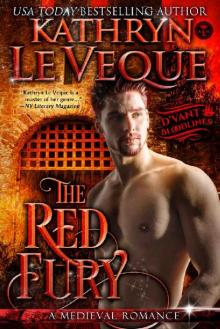 The Red Fury
The Red Fury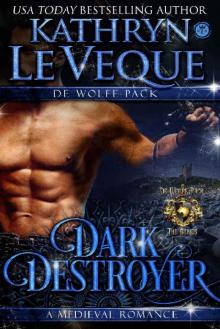 Dark Destroyer (De Wolfe Pack Book 6)
Dark Destroyer (De Wolfe Pack Book 6)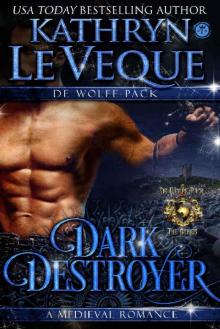 Dark Destroyer
Dark Destroyer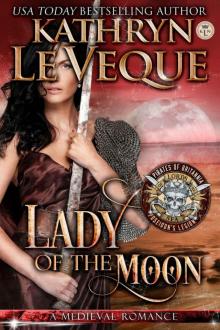 Lady of the Moon (Pirates of Brittania Book 1)
Lady of the Moon (Pirates of Brittania Book 1) Medieval Romantic Legends
Medieval Romantic Legends Medieval Ever After
Medieval Ever After Under The Kissing Bough: 15 Romantic Holiday Novellas
Under The Kissing Bough: 15 Romantic Holiday Novellas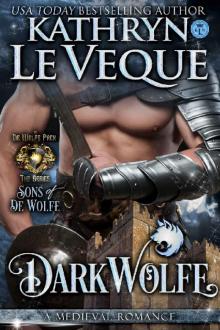 DarkWolfe: Sons of de Wolfe (de Wolfe Pack Book 5)
DarkWolfe: Sons of de Wolfe (de Wolfe Pack Book 5)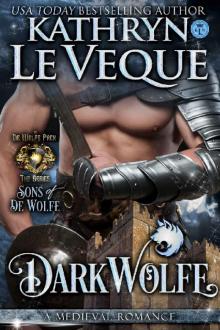 DarkWolfe
DarkWolfe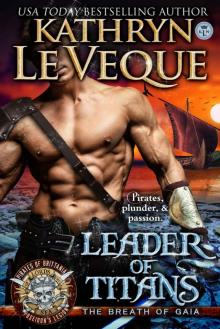 Leader of Titans_Pirates of Britannia
Leader of Titans_Pirates of Britannia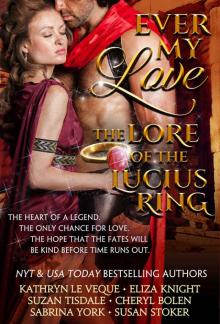 Ever My Love: The Lore of the Lucius Ring (The Legend of the Theodosia Sword Book 2)
Ever My Love: The Lore of the Lucius Ring (The Legend of the Theodosia Sword Book 2) Sirens of the Northern Seas: A Viking Romance Collection
Sirens of the Northern Seas: A Viking Romance Collection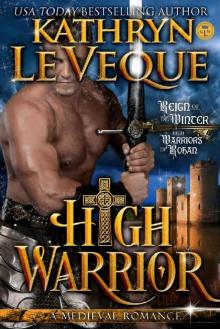 High Warrior
High Warrior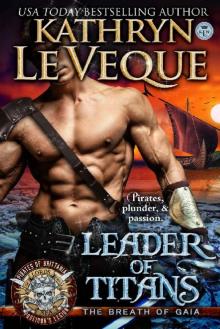 Leader of Titans
Leader of Titans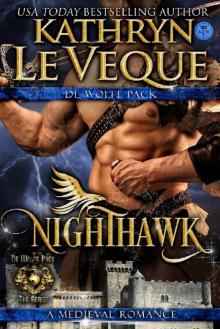 Nighthawk: Sons of de Wolfe (de Wolfe Pack Book 7)
Nighthawk: Sons of de Wolfe (de Wolfe Pack Book 7)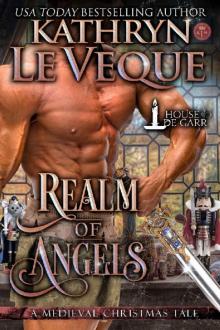 Realm of Angels
Realm of Angels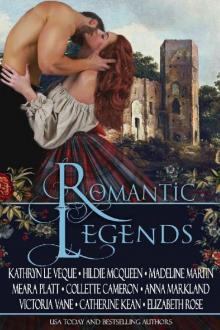 Romantic Legends
Romantic Legends